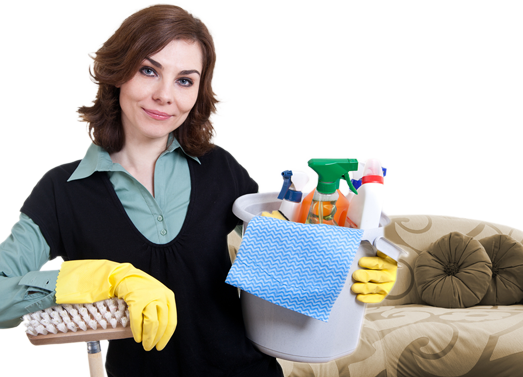Freshen Up Your Home by Eradicating Pet Odor
Posted on 28/09/2025
Freshen Up Your Home by Eradicating Pet Odor
Pets bring tremendous joy, companionship, and comfort into our lives. However, living with furry friends often comes with a common challenge: pet odor. Whether you have a playful puppy, a mischievous cat, or any other household animal, their presence can leave behind lingering smells that can make your home less inviting. If you're looking for a comprehensive solution to eliminate pet odors and enjoy a fresher living space, you've landed in the right place.
Understanding Pet Odor in the Home
Why do our beloved animals cause odors? The answer often goes beyond just fur and dander. Pet odor can stem from accidents, saliva, sweat glands, shedding, litter boxes, or even the pet's bedding. Over time, these smells can become ingrained in carpets, upholstery, floors, and even the very air you breathe. It's not only about cleanliness; persistent pet smells can affect your mood, guests' experiences, and even property value.
Common Sources of Pet Odor
- Accidents: Urine and feces on floors, walls, or carpets.
- Shedding: Dead skin cells and fur can trap odors.
- Litter boxes: Poorly maintained boxes can fill an entire home with pungent smells.
- Pet Beds and Toys: Absorb scents over time.
- Damp animal smells: Dogs, especially, can develop a 'wet dog' scent if not dried properly.
- Mouth and ears: Bad breath or ear infections create localized odors.

Effective Strategies to Eradicate Pet Odor
While air fresheners and scented candles might mask the smell temporarily, they don't address the root cause. If you want to permanently remove pet odors, you need a combination of cleaning routines, preventive care, and targeted odor neutralizers. Here is how to make your home smell fresh and inviting again:
1. Deep Clean Your Home Regularly
- Vacuum Thoroughly - Pet hair and dander accumulate in carpets, rugs, and sofas. Vacuum daily with a machine that has a HEPA filter to trap microscopic particles. Don't forget under furniture and along baseboards.
- Wash Fabrics Often - Launder pet beds, blankets, slipcovers, and pillowcases weekly. Use a mild detergent and add a cup of white vinegar to the rinse cycle to help neutralize odors naturally.
- Clean Floors with the Right Solutions - For hard floors, mop with an enzymatic cleaner specifically designed for pet messes. These products break down odor-causing molecules rather than masking them.
2. Address Pet Accidents Immediately
- Blot, Don't Rub - If an accident happens, immediately blot up liquids with absorbent paper towels. Avoid rubbing, which spreads the stain and pushes it deeper.
- Use an Enzymatic Cleaner - After blotting, apply a commercial enzymatic cleaner. These break down the proteins in urine and feces at the molecular level, neutralizing odor and discouraging repeat accidents.
- Try Natural Alternatives - Sprinkle baking soda on damp areas and let it sit for 20-30 minutes before vacuuming. Baking soda naturally absorbs unpleasant smells.
3. Focus on Pet Grooming and Hygiene
- Regular Baths - A clean pet is a less smelly pet! Use a pH-balanced shampoo designed for your animal's species and breed. Consult your vet for grooming frequency; too much washing can dry out skin.
- Routine Brushing - Daily brushing reduces shedding and removes dirt, dander, and saliva - major contributors to pet odor.
- Check Teeth and Ears - Halitosis (bad breath) and ear infections can create strong localized stenches. Regularly brush teeth with pet-safe toothpaste and clean ears as recommended by your veterinarian.
4. Maintain Litter Boxes and Pet Areas
- Scoop Daily - Remove waste from litter boxes as soon as possible, and thoroughly wash the box with hot, soapy water every week. Replace litter completely rather than just topping up.
- Air Out Sleeping Areas - Wash bedding, blankets, and stuffed toys every week. If possible, rotate two sets, so your pet always has a clean option.
- Choose Odor-Control Products - Use litter or bedding with built-in odor-neutralizing agents, such as activated charcoal or baking soda.
5. Enhance Indoor Air Quality
- Open the Windows - Fresh air is your best ally. Open windows for at least 10-15 minutes daily to flush out stale, pet-laden air.
- Invest in an Air Purifier - Air purifiers with a HEPA filter and activated carbon can trap pet dander, hair, and odors, helping your whole house stay fresh.
- Houseplants - Certain houseplants like spider plants, peace lilies, and snake plants help purify the air and absorb smells (just ensure they're safe for your pets).
DIY Pet Odor Removal Solutions
Commercial odor eliminators work, but many households prefer natural cleaning methods, particularly for use around sensitive pets and children. Here are a few DIY remedies for pet odor that are effective and gentle:
Baking Soda Freshener
- Sprinkle baking soda liberally on carpets or furniture, let it sit overnight, then vacuum thoroughly. This helps neutralize odors instead of just covering them up.
Vinegar Spray
- Mix equal parts distilled white vinegar and water in a spray bottle. Mist over affected surfaces and allow to air dry. Vinegar's acidity helps kill odor-causing bacteria, though the vinegar smell dissipates quickly.
Lemon and Essential Oil Deodorizer
- Mix water with a few drops of lemon juice or pet-safe essential oils (such as lavender or chamomile). Mist lightly around the home for a burst of freshness. Always check oils are safe for animals.
Preventing Future Pet Odors
To keep your home smelling fresh, prevention is key. Here are proven strategies to stop smells before they start:
- Potty Train Consistently - Establish reliable bathroom routines for your pets. Praise and reward outdoor potty breaks or successful use of the litter box.
- Update Litter Types - If one litter isn't controlling the smell, experiment with different materials such as crystal, clumping, or natural litters.
- Protect Furniture - Use washable covers on sofas or beds your pets frequent; launder them often.
- Regular Vet Check-Ups - Unusual or persistent odors can sometimes signal health issues like infections, dental diseases, or skin conditions. Regular vet visits catch these early.
- Monitor Diet - The quality of your pet's food directly impacts their smell--from their breath to their skin to their waste. Consult with your vet for recommendations on high-quality, digestible diets.
Choosing the Right Products for Pet Odor Elimination
With so many products on the market, it can be overwhelming to decide what is best for eliminating pet odors. Here are some criteria to consider:
- Enzyme Cleaners - These are the gold standard for breaking down organic matter and are much more effective than standard cleaners for pet odors.
- Activated Carbon or Charcoal - Often built into filters, litter, or even pet beds, these materials naturally absorb and neutralize smells.
- Hypoallergenic Sprays and Powders - Ideal for homes with allergy sufferers or sensitive pets.
- Eco-Friendly, Pet-Safe Formulas - Always check for non-toxic, gentle ingredients that are safe for both animals and humans.
Specialized Odor Removal for Different Surfaces
Pet odor removal often requires different approaches based on the type of surface:
Carpet and Rugs
- Vacuum regularly with a HEPA filter.
- Treat stains quickly with enzyme cleaner.
- Professionally deep clean carpets 1-2 times per year for embedded odor and residue removal.
Hard Floors (Wood, Tile, Laminate)
- Mop using appropriate pet-safe cleaning solutions.
- Wipe up accidents quickly to prevent urine seeping into cracks or grout.
Furniture and Upholstery
- Use fabric-safe enzyme sprays.
- Remove cushion covers for frequent laundering.
- Consider a portable upholstery cleaner for deeper stains and smells.
Walls and Baseboards
- For persistent markings from cats or dogs, clean surfaces with a vinegar-water solution.
- For tough messes, try a melamine sponge (such as Magic Eraser) dampened with water and vinegar.

Frequently Asked Questions About Pet Odor Elimination
Can pet odor be completely eliminated?
Yes! With consistent cleaning, proper products, and a few lifestyle changes, you can completely remove pet smells from your home. Deep-rooted or old odors may need a professional touch, but most can be tackled with the tips outlined above.
Are most pet odor products safe for pets and children?
Not always. Always check labels for non-toxic and pet-safe indications. Natural solutions, like baking soda and vinegar, are generally safe but should be used with care and fully cleaned up before pets return to the area.
What should I do if nothing seems to work?
If persistent odors remain despite thorough cleaning, consult a professional cleaner with experience in pet odor removal. There may also be a hidden source of odor, such as subfloor damage, mold, or a health issue in your pet.
Conclusion: Enjoy a Fresh, Odor-Free Home with Pets
Eradicating pet odor is more than just about smell--it's about creating a stress-free, welcoming home for you and your family. By combining effective cleaning habits, the right products, DIY solutions, and a preventive approach, it's absolutely possible to enjoy the joys of pet companionship without the downside of lingering smells.
Remember, pet odor elimination is an ongoing process but well worth the effort. Your senses (and your guests!) will thank you. Start applying these tips today to freshen up your home by eradicating pet odor once and for all!





